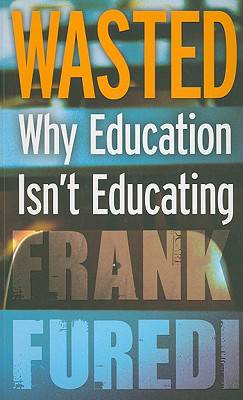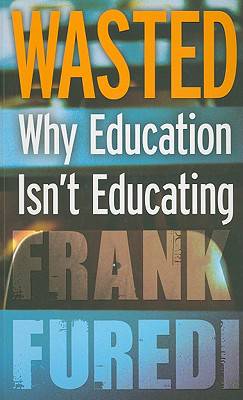
- Afhalen na 1 uur in een winkel met voorraad
- Gratis thuislevering in België vanaf € 30
- Ruim aanbod met 7 miljoen producten
- Afhalen na 1 uur in een winkel met voorraad
- Gratis thuislevering in België vanaf € 30
- Ruim aanbod met 7 miljoen producten
Zoeken
Omschrijving
Never has so much attention been devoted to education. Everyone - government ministers, social commentators and parents obsess about its problems. Yet we rarely ask why? Why is education a source of such concern? Why do many of the solutions proposed actually make matters worse?
Tony Blair's 'education, education, education' slogan placed education at the forefront of political agendas. But, perhaps the 'policisation' of education is part of the problem. Today, education is valued for its potential contribution to economic development, but it is no longer considered important for itself. Increasingly, the promotion of education has little to do with the value of learning per se or with the importance of 'being taught' about societies' achievements, so future generations have the intellectual ability to advance still further. Education has been emptied of its content.
This book is a brilliant piece of analysis. It peers into the hollowness of the education debates and, drawing on thinkers from the ancient Greeks to modern critics, it sets out what we need from our schools.
Tony Blair's 'education, education, education' slogan placed education at the forefront of political agendas. But, perhaps the 'policisation' of education is part of the problem. Today, education is valued for its potential contribution to economic development, but it is no longer considered important for itself. Increasingly, the promotion of education has little to do with the value of learning per se or with the importance of 'being taught' about societies' achievements, so future generations have the intellectual ability to advance still further. Education has been emptied of its content.
This book is a brilliant piece of analysis. It peers into the hollowness of the education debates and, drawing on thinkers from the ancient Greeks to modern critics, it sets out what we need from our schools.
Specificaties
Betrokkenen
- Auteur(s):
- Uitgeverij:
Inhoud
- Aantal bladzijden:
- 256
- Taal:
- Engels
Eigenschappen
- Productcode (EAN):
- 9781441122100
- Verschijningsdatum:
- 6/01/2011
- Uitvoering:
- Paperback
- Formaat:
- Trade paperback (VS)
- Afmetingen:
- 137 mm x 211 mm
- Gewicht:
- 299 g

Alleen bij Standaard Boekhandel
+ 43 punten op je klantenkaart van Standaard Boekhandel
Beoordelingen
We publiceren alleen reviews die voldoen aan de voorwaarden voor reviews. Bekijk onze voorwaarden voor reviews.







